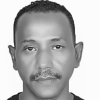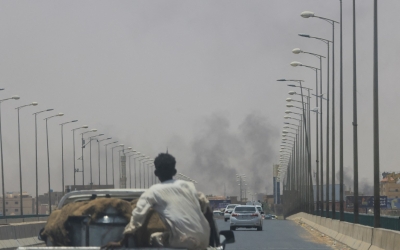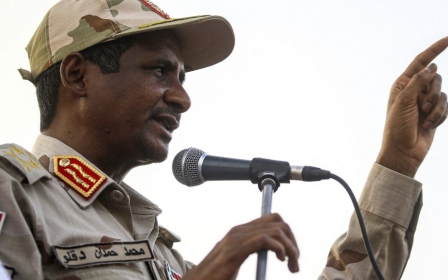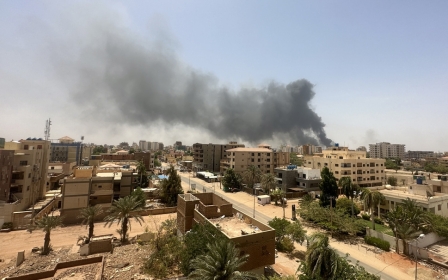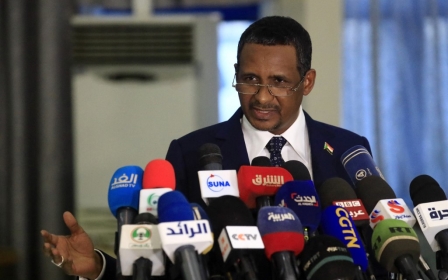Sudan turmoil: There will be no winners in the generals' war
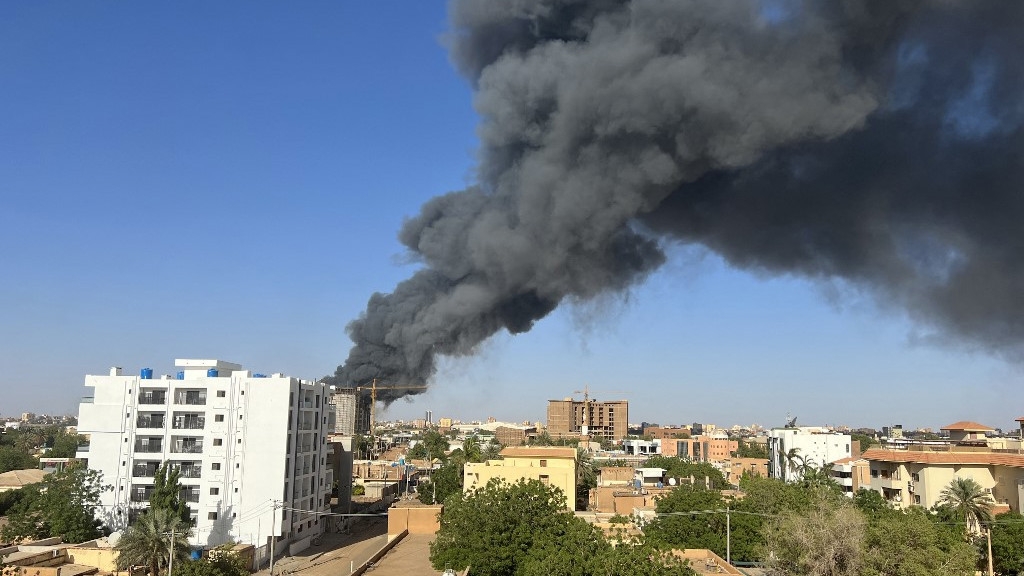
Dark and smoke-filled skies, terrifying echoes of crossfire, pedestrian-free streets, non-functioning hospitals, closed shops, water disconnections and electricity blackouts - the tragedy in Sudan continues as conflict extends across Khartoum, a once-vibrant city.
How did this all start? The conflict between Sudan’s two most powerful generals had been simmering for some time, but recent political developments poured fuel on the fire, amid a disagreement over the integration of the Rapid Support Forces (RSF) into the military.
The RSF is led by Mohamed Hamdan Dagalo, widely known as Hemeti, while the Sudanese Armed Forces are led by Abdel Fattah al-Burhan.
The disagreement between Burhan and Hemeti has overshadowed their collaborative history. In December 2022, military and civilian leaders in Sudan signed a framework agreement to end military rule and facilitate a civilian-led transition to elections. But the dispute over the RSF’s role, including who would ultimately have control over fighters and weapons, created a major obstacle to finalising the deal.
Earlier this month, RSF forces deployed to the northern town of Merowe, which houses a strategic military base, along with Khartoum and other parts of the country. The Sudanese army said these moves were made without its approval.
New MEE newsletter: Jerusalem Dispatch
Sign up to get the latest insights and analysis on Israel-Palestine, alongside Turkey Unpacked and other MEE newsletters
Clashes soon erupted in Khartoum, targeting strategic locations, such as the airport and army headquarters. The Forces of Freedom and Change (FFC) coalition, which has represented civilians in internationally mediated talks with Sudan’s military, said this month that “the current plan is a plan of the remnants of the former regime and aims to destroy the political process”.
The release called on the Sudanese people to “stand against the war and against the return of the remnants of the former regime”.
Meanwhile, the carnage continues. According to the World Health Organization, more than 400 people have been killed and more than 3,500 injured since fighting broke out. Dead bodies have been left in the streets of Khartoum, with people unable to venture out amid ongoing crossfire.
The humanitarian situation is catastrophic, with around two-thirds of hospitals in the area reportedly falling out of commission within a matter of days. A number of countries, including Saudi Arabia and the US, have evacuated citizens or embassy staff from Sudan.
Humanitarian efforts
Sudan’s federal health ministry has called upon the warring parties to engage in a ceasefire and allow safe transit for ambulances and patients’ vehicles. Humanitarian efforts were further hindered after a United Nations plane was damaged in clashes at the Khartoum airport.
For residents in the capital, there is a dire shortage of basic necessities, including water, which has been disconnected across vast areas of Khartoum. Amid prolonged electricity blackouts, many civilians are holed up in their homes without food, unable to venture out because of the continuous fighting and tenuous security situation. Many have taken to social media to call for evacuation assistance.
For the Sudanese people to have their voices heard, they need representation through their civil society entities - the only path towards a sustainable peace
The shortage of medication and food supplies will intensify if the fighting drags on; already, it has forced most pharmacies, supermarkets and shops to close.
Last week, a 24-hour ceasefire was announced in order to address urgent humanitarian needs, but it was swiftly broken, with the two sides trading accusations over who was to blame.
Hemeti and Burhan are surely aware that no on-the-ground military battle is capable of achieving an ultimate solution to their political dispute. Rather, each side is seeking to weaken and defeat the other in an effort to secure a better negotiating position for their own forces.
The ongoing conflict is not an easily winnable war, given the complexity of its geopolitical and geographical context. It’s unfolding in a capital city whose metro area is inhabited by millions of civilians; targeting military bases while attempting to avoid harming these people is an extremely tough task.
Drastic ramifications
The drastic and multilayered ramifications of the conflict will continue to unfold as battles drag on. A massive internal displacement crisis, from Khartoum to other states, is looming, as the conflict poses a major threat to the country’s precarious economy. Fragile infrastructure risks being completely destroyed.
The way out of this quagmire entails a consideration of the third side of the power triangle comprising the army, the RSF and the Sudanese people.
The absence of Sudanese citizens from this equation seems to have caused an imbalance. For the Sudanese people to have their voices heard, they need representation through their civil society entities - the only path towards a sustainable peace. A unified Sudanese initiative would also need to be harnessed and sustained by regional actors.
For its part, the international community needs to urgently intervene, using both diplomacy and established multilateral regional ties, to help prevent Sudan from sliding into total chaos.
The Arab League called for a truce during Eid to enable Sudanese citizens to address urgent humanitarian needs. If successfully implemented, this could have been a starting point for a constructive dialogue. But even as celebrations began on Friday, the conflict continued, marring the holy day with the sounds of gunfire, aerial bombardment and rocket launchers.
Ultimately, there will be no winner in this war, and the country itself stands to lose a great deal. The resources being devoted to this conflict should be directed instead towards developing Sudan, rather than tearing it apart.
The views expressed in this article belong to the author and do not necessarily reflect the editorial policy of Middle East Eye.
Middle East Eye delivers independent and unrivalled coverage and analysis of the Middle East, North Africa and beyond. To learn more about republishing this content and the associated fees, please fill out this form. More about MEE can be found here.


